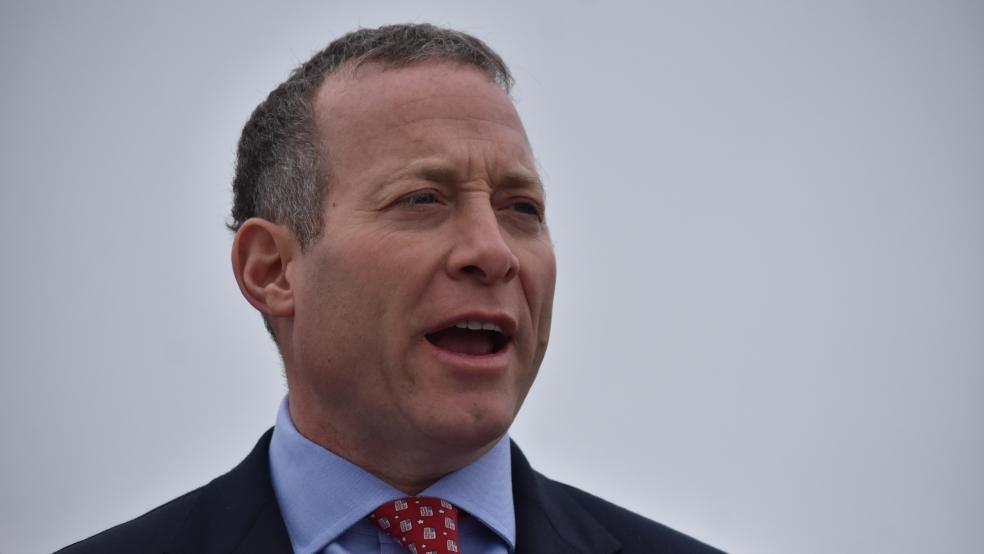With Speaker McCarthy and President Biden barreling toward each other in a high-risk game of chicken over the debt ceiling, a bipartisan group of self-styled centrists in the House on Wednesday floated a fallback plan to use if party leaders can’t make a deal to avoid a potentially disastrous default on U.S. obligations.
Split roughly equally between Democrats and Republicans, the 64-member House Problem Solvers Caucus released a proposal aimed at avoiding a default and creating a workable budget. “The debt ceiling and debt crisis demand a two-party solution,” caucus co-chair Brian Fitzpatrick (R-PA) said. “We must never allow our nation to default on our debt, we must never put our nation’s full faith and credit at risk, and we must insist on responsible budget reform measures.”
The “proposed debt ceiling framework” would suspend the debt limit until December 31, in order “to remove immediate pressure of defaulting on our national debt.” This would give lawmakers enough time to finish a budget for fiscal year 2024, and to create an external commission tasked with recommending a package of measures that would stabilize deficits and debt over time. The commission would have a reporting deadline of December 31, 2024, with a vote required on its recommendations by February 28, 2025. The group also calls for the adaptation of “interim deficit stabilization controls” — which are not defined — for use in the 2024 budget process.
If lawmakers are able to establish the commission and satisfy certain requirements, including the use of regular order for budgeting and appropriations, by the end of this year, then the debt ceiling suspension would automatically convert to a debt ceiling increase lasting until February 2025 — “the amount of which will be guided by the established interim deficit stabilization controls.”
Rep. Josh Gottheimer, the New Jersey Democrat who co-chairs the Problem Solvers Caucus, said the proposal addresses two major issues at the same time. “We can both suspend the debt ceiling and help prevent our nation’s economy from driving off a fiscal cliff — and address our nation’s longer-term fiscal health,” he said. “Nobody should use the full faith and credit of the United States as a bargaining chip and I look forward to continuing our bipartisan work to prevent a debt crisis. We can protect Americans’ savings and our standing in the world.”
Uncertain future: As Bloomberg’s Erik Wasson notes, the Problem Solvers’ proposal cannot move forward without McCarthy’s approval. That means the plan is going nowhere for now, as McCarthy pursues his own effort to pass a bill that forces the White House to negotiate with him over spending cuts in exchange for raising the debt ceiling. But if McCarthy’s effort fails, the bipartisan centrist plan may serve as the basis for an emergency alternative in the event that a debt crisis suddenly appears perilously close.
TD Cowen analyst Chris Krueger says that the centrists’ plan could help resolve a potential deadlock over how to proceed on the debt ceiling. “This is the classic kick the can, which we believe will be a feature of any final bill that raises/suspends the debt,” he said in a note late Wednesday.
The Problem Solvers touted their plan as a more realistic way forward. “How else are we going to get 60 votes in the Senate and navigate the four-vote GOP margin?” Fitzpatrick said. “It’s going to have to be a two-party solution. So why don’t we just start on that now?”




